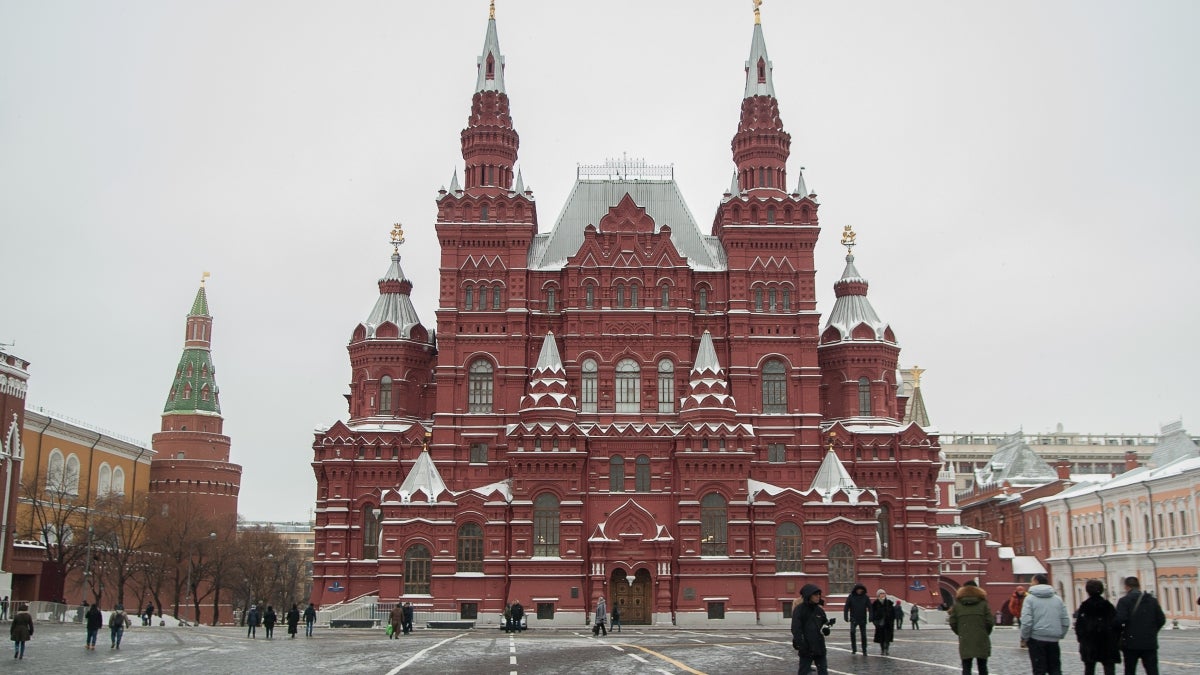Tensions over Russia have flared in the U.S. for weeks: An aide to President Vladimir Putin was among a handful of Russians added to a U.S. blacklist Monday. It came days after an intelligence report was released, accusing Russia of interfering with the U.S. presidential election. Outgoing President Barack Obama, meanwhile, has levied sweeping sanctions against Russia, expelling diplomats and closing compounds.
An ASU expert, professor Mark von HagenMark von Hagen is a professor of history in the School of Historical, Philosophical and Religious Studies in the College of Liberal Arts and Sciences., said the recent news shows that U.S.-Russian relations are at their worst point since the Cold War.
ASU professor Mark von Hagen
In an effort to better understand Russia, its motivations and its potential impact as an adversary or friend to the U.S., ASU Now spoke with von Hagen, a professor of history and an expert on Russia, national politics and Russian civil-military relations.
Question: How would you describe present-day Russia under President Putin?
Answer: Russia can be understood as an oligarchy where power is concentrated in an economic and power ministry set of elites, such as the Ministry of Interior, the Armed Forces and the FSB, formerly the KGB.
The oligarchy is managed by Vladimir Putin, with fewer and fewer institutional and social checks and balances since he came to power as president in 2000. Although there are regular elections and several parties that compete in those elections, there is little room for genuine opposition.
Governors are appointed by the president, the mass media are dominated by state agencies, and non-government organizations that investigate human rights abuses and state corruption are declared “foreign agents” and shut down.
Meanwhile, economic inequality is profound, with much of the country’s wealth concentrated in Moscow and Petersburg; and much of the rest of the country suffers from high rates of poverty, increasing substance abuse, especially alcohol, and brain drain, especially among young people and professionals.
Q: How would you characterize its strength today, economically and politically?
A: Russia has been described by President Obama as a regional power with nuclear weapons.
This reflects a recognition of Russia’s decline from its superpower status during the Cold War to a much-reduced economy and, until recently, with an armed force also in serious decline. Moreover, Putin’s government has failed to launch significant reforms to move Russia away from its oil and gas export-driven economy, so its economy has felt a great blow from the fall of oil and gas prices, much more than any sanctions imposed by the West.
Russia is still adjusting to the loss of its superpower status, and its empire in Eastern Europe and what it calls the “near abroad.” These countries — including Ukraine, the Baltic states, Moldova and Georgia most particularly — feel themselves vulnerable to Russian pressures because, compared to them, Russia is indeed powerful and threatening.
Q: How would you describe the relationship of Russia to the United States in the post-Soviet period?
A: Russian-American relations today are worse that any time since the late years of Brezhnev’s Soviet Union, when the U.S. protested against the Soviet intervention in Afghanistan with a boycott of the Moscow 1980 Olympics and later joined with Pakistan to fund local fighters to dislodge the Soviet-supported government there.
Though Putin was the first world leader to pledge support for President George W. Bush after 9/11, that relationship deteriorated after the Russian-Georgian war in 2008 and, most recently and most seriously, since anti-Russian protests in Ukraine in November 2013; the subsequent regime change in Ukraine that led to the pro-Russian president’s flight; the Russian occupation and annexation of Crimea; and Russian support for the separatist insurgents in eastern Ukraine.
Russia’s domestic evolution toward an authoritarian police state and its foreign policy of neo-imperialism make any possible rapprochement of our two countries a very difficult challenge.
Q: How unusual is it for an American president to express strongly positive views of Russia?
A: It is highly unusual.
The last and closest analogy is George Bush’s claim that he had seen into Vladimir Putin’s soul and found a good man and trustworthy partner. That didn’t go over well with many Cold War conservatives or Russia specialists.
But Donald Trump’s praise for an authoritarian leader of a country that has listed the United States and NATO as enemies in its military doctrine — and his disparagement of intelligence reports that allege Russian hacking into American elections — is unprecedented.
More Law, journalism and politics

A new twist on fantasy sports brought on by ASU ties
A new fantasy sports gaming app is taking traditional fantasy sports and mixing them with a strategic, territory-based twist.Maptasy Sports started as a passion project for Arizona State University…

'Politics Beyond the Aisle' series to explore the stories of public officials
In an effort to build a stronger connection between students and political and civic leaders, Arizona State University’s School of Politics and Global Studies hosted the first event of its new series…

ASU committed to advancing free speech
A core pillar of democracy and our concept as a nation has always been freedom — that includes freedom of speech. But what does that really mean?Higher education doesn’t have an agenda to curate a…



